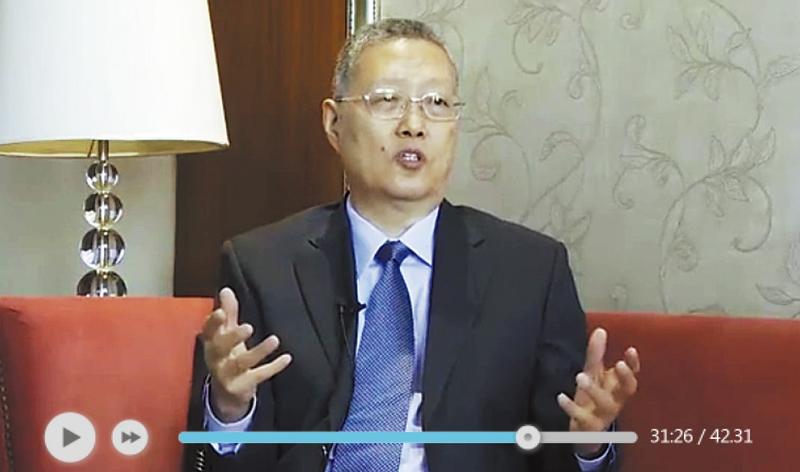
President Xi Jinping's call for a collective global response to the novel coronavirus, coupled with coordinated macroeconomic policies, is vital for the world to overcome the outbreak, said He Yafei, a veteran diplomat.
He, former vice-minister of foreign affairs and former vice-minister of the Overseas Chinese Affairs Office of the State Council, said the proposals put forth by Xi at the Extraordinary G20 Leaders' Summit on Thursday are extremely important, and solidarity and unity are essential for efforts to contain the disease, which is "an existential threat to human kind".
"At such a moment, it is imperative for the international community to strengthen confidence, act with unity and work together in a collective response," Xi said.
Xi also said that "countries need to leverage and coordinate their macro policies to counteract the negative impact and prevent the world economy from falling into recession".
So far, countries' responses to the pandemic have been "very much fragmented", He said in his speech at the Vision China event.
"Some take one kind of measure which is more leisurely, the other maybe more restrictive. There are no coordinated, concerted actions to show that we are in this together."
The current rapid spread of the novel coronavirus around the globe is putting China, whose domestic situation is improving, under an increasing threat of infection being imported.

The virus threatens to weaken the global economy and lead to a financial crisis larger than the one in 2008, which will require coordinated international efforts to fend off, He said.
The pandemic has led to volatility in stock markets and raised concerns about the global supply chain. In a statement on tackling COVID-19, the G20 leaders said they are injecting US$5 trillion into the global economy to counteract the pandemic's impacts.
Addressing the summit, Xi said China is ready to share its good practices, conduct joint research and development of drugs and vaccines, and provide assistance where it can to countries hit by the growing outbreak.
Speaking of China's offer of assistance, He said the country is shouldering a responsibility commensurate with its global status.
China will continue to provide assistance to countries in need within its capacity, He said, adding that "other countries, especially the United States, I think, should be doing the same thing".
China has provided assistance of medical supplies to 120 countries, and has sent medical experts to countries including Iran, Iraq and Italy.
The recipients of China's aid include those suffering serious epidemics and those with weaker public health capacity. China has also donated US$20 million to the World Health Organization for tackling COVID-19.
![]()
65, is a veteran diplomat who served as vice-minister of foreign affairs from 2008 to 2010. From March 2010 to January 2012, he served as the representative of the Permanent Mission of China to the United Nations in Geneva as well as other international organizations in Switzerland. He was appointed a distinguished professor by Yenching Academy of Peking University in March 2016.


